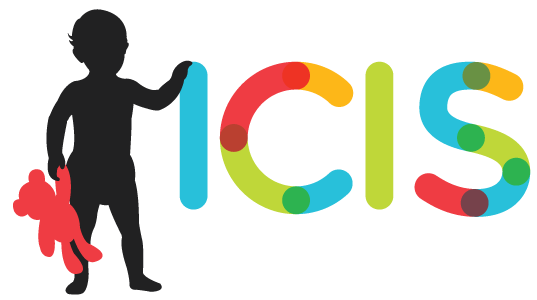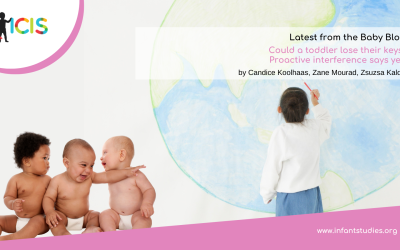by Natasha Cabrera
Being a father “is the best thing [that] could ever happen in my life, I love my daughter, I love my wife so much, I love my family,” said a dad who participated in an intervention study of low-income fathers and their children. He was candid about both joys and costs. For this dad, being a dad “doesn’t have any costs [if] you are sure you want to be a dad.” For other dads, the costs as a father can stand in the way of being a “good” dad. Many dads say they lack of support from programs and the community and often feel lonely in the father parenting role. This father reported he often felt his child’s maternal family didn’t see that he loved his daughter, rather, they mostly cared about the money he was bringing home.
Of course, fathers’ financial contribution is important for their children and families. But this is not the only role they play to support their children’s growth and development. Over the last few decades, families have become more diverse and complex than they were just a few decades ago. Children are likely to grow up in families where father is nonresident, both parents working outside the home, and surrounded by other adults, including grandparents, who provide care and support. Consequently, fathers are more involved in the daily care of their children compared to their own fathers and mothers are more likely to be working outside the home than their own mothers. In short, we have seen dramatic shifts from the traditional roles of fathers as breadwinners and mothers as primary caretakers to more flexible roles that encourage fathers to be as nurturing as mothers. Just as mothers’ experiences working outside the home show children that women can be leaders and financial contributors to the household, children see their fathers involved in the day-to-day parenting tasks, such as changing diaper, feeding, entertaining, and engaging their children in stimulating activities such as reading and helping with homework, playing, and daily routines. This blurring of roles and of who-does-what in the home creates a more holistic view of parenting. The multiple roles that both mothers and fathers play in their children’s lives reinforces the importance of supporting, acknowledging, and enhancing nurturing father-child relationships.
Positive nurturing and reciprocal relationships between caregivers, including fathers, and children are at the center of healthy development of children. Fathers who spend time and resources in engaging with their children in positive, responsive, and reciprocal interactions are likely to provide children with experiences that can foster their growth and development. Nurturing fathers provide loving care and support during times of distress and encourage confidence and independence at other times. Nurturing fathers engage children in a variety of fun and engaging learning activities, such as reading, playing, and doing puzzles together, creating an emotionally supportive climate for young children. Father are also adept in pushing their children beyond their comfort zones so they can try something new, become less anxious in social interactions, or learn something about themselves.
Fathering is not a one-way street, as a dad so aptly put it, “I like to play with her, I like to spend time with her a lot, I like that she learns from me, and that I learn from her…I like to be with her, yeah.” During these dynamic and reciprocal verbal and nonverbal interactions, children explore and learn by trial and error in developmentally appropriate ways. Nurturing fathers also reward their children when they succeed and encourage them to keep trying when they don’t. In these emotionally supportive moments, children learn to regulate their emotions and behaviors and to initiate social interactions with others. Independent of other family characteristics and support, a nurturing caregiving environment characterized by positive and reciprocal relationships with fathers and mothers is likely to provide an optimal emotional context for children’s early brain maturation and development.
Fathers’ bond with their children: How early is early?
Before birth, fathers, like mothers, begin to imagine their unborn child: What would she look like? Would she like sports? How will I love this child? When fathers are attuned to the growing baby and are involved by supporting mothers or by listening to the heart beat or seeing an ultrasound, they begin to develop an identity and a cognition that they are going to be dads.
This prenatal period is fundamental and powerful moment for fathers as it can set the stage for future involvement in their child’s life, particularly if the relationship with the child’s mother dissolves. These cognitions about what’d be like to be a parent begin the journey of fatherhood. Both fathers and mothers often say that nothing prepares us for parenthood. For some this trajectory is easier than it is for other parents. Regardless, at the core of this journey is the bond between fathers and their children. The most significant aspect of father-child relationships is the extent to which they and their children form close emotional attachments that evolve over time and last a life time. Decades of research with mothers have shown that the extent to which mothers are warm, responsive, sensitive, and aware of children’s emotional and physical needs, can build, support, and strengthen mother-child attachment bond. This is similar for fathers. Fathers who are involved and engaged in their child’s life from birth onwards have a better chance of developing a long-lasting loving relationship that can be nurturing and protective for both fathers and children. This relationship can support and emotionally nurture both children and fathers over time.
Why fathers matter for children’s development
Although it shouldn’t surprise any father (or mother) that fathers are more than a paycheck, the research community has been slow to build the empirical evidence to show how fathers matter for children’s development and when and how they matter the most. But we’ve made progress. We now have a relative strong body of research that shows that fathers “do fathering” in their own unique way. Fathers contribute to their children’s lives in many ways, influencing children’s social, cognitive, and language development in ways that are independent from mothers’ contributions. The way fathers “do fathering” is similar but also different from mothers, which is one of the reasons researchers have not always captured it with their assessment tools based on “the maternal template.” For example, fathers are more likely to engage in physical play that involves wrestling, tumbling, and chasing one another in a playful context. This type of “rough and tumble play” encourages children to take risks and set limits. These father-child interactions have been shown to help both boys’ and girls’ abilities to regulate their own behavior and emotions, particularly aggressive behaviors. Alternately, mothers who also engage in rough and tumble play but prefer to focus on more caregiving and nurturance behaviors, which are also important for developing a secure relationship.
Aside from engaging in more physical play and doing their share of caregiving activities, fathers have unique ways to talk and converse with their children that may have significant benefits, above the benefits that mothers provide. Exciting new research has shown that fathers also help with their children’s language, including vocabulary development and production of words. Fathers tend to ask more questions, specifically wh-questions (i.e., who, what, when, where, why, how) to their children while reading or talking. These types of questions encourage more back and forth talk with their children and have been linked to more advanced language skills in their children. In contrast to fathers’ more direct language, mothers tend to use more “motherese” or slow, higher pitched exaggerated speech to their babies, which assists in developing infants’ language processing. These different types of verbal interactions reinforce the importance of both mothers and fathers roles in child development in communication.
A new area of research that is just emerging is examining the way fathers interact with their children in the area of math cognition. This area of research more than others, perhaps, has been very slow to examine whether fathers have a unique influence in how children develop math concepts and skills. A dad in one of our studies who was asked to “play with [his] child [as he] normally would” was videotaped playing with his child using plastic vegetable toys. During the interaction, the dad said to his delighted 9-month old infant, “I think there’s a seventy percent chance that this is a pepper.” Whether these types of linguistic exchanges are meaningful or not, or whether they should be encouraged, remains to be seen. The point is that we need to be open to the idea that fathers are not mothers, but that as mothers, their relationships, interactions, and input does matter for children’s development. And, of course, there is exciting new research in the neuroscience and biological fields that are beginning to map the neurobiology of fathers caregiving behaviors and are showing that like mothers, fathers’ involvement is “skin deep.”
I end this blog post with a couple of take-home messages. Fathers certainly contribute to their children’s development in ways that go beyond their financial support and over and above what mothers do for their children. A positive father-child relationship can greatly shape children’s life and healthy development. To honor this observation, the research community needs to be intentional about including fathers in research. Including fathers into research should not be an afterthought or should include dads “only if they’re there when we visit mothers,” or lament that although they would like to include dads, there simply couldn’t because of lack of funds. Programs and policymakers should purposefully and meaningfully make room for dads (even if dads do not live with their children) in policies and programs that support parent involvement in all aspects of children’s lives. Fathers, like mothers, love their children and want the best for them. But, like mothers, they are not perfect parents and are subject to the same risks and vulnerabilities that sometimes makes it difficult for mothers to parent their children to the best of their abilities. Fathers need support and encouragement to be the best dads that they want to be. Fathers are motivated to do so and are ready for the task. As one dad said when we asked him what makes him want to be a good dad: “my love for my child” and that I am “able to see [my] daughter smile at [me], see her happy when playing with her…even though sometimes [I] don’t have the energy because [I] either worked too much or [I am] restless, but it is like your daughter makes you do things that you didn’t want to but you do them to make her happy.” We need to build on fathers’ strong motivation to love their children and support them by, in turn, helping and encouraging dads, and mothers, to be the loving and supportive parents they want to be.
Note: This blog expands an early blog post:
https://infoaboutkids.org/blog/beyond-the-breadwinner-role-promoting-positive-father-child-relationships-in-early-childhood/ Cabrera, N. J. & Hennigar, A. (2018). Beyond the Breadwinner role: Promoting Positive Father-Child Relationships in Early Childhood.
About the Author

Natasha Cabrera
University of Maryland
Natasha Cabrera received her Ph.D. in Educational and Developmental Psychology from the University of Denver and her MA degree from the University of Toronto. Dr. Cabrera joined the University of Maryland faculty in 2002 and arrived with several years of experience as an SRCD Executive Branch Fellow with the National Institute of Child Health and Human Development (NICHD). Her current research topics include: father–child and mother–child relationships, predictors of adaptive and maladaptive parenting, children’s social and emotional development in different types of families and cultural /ethnic groups, and, the mechanisms that link early experience to children’s later cognitive and social development. She has published in peer–reviewed journals on policy, methodology, theory and the implications of minority fathers’ and mothers’ parenting on children’s cognitive and social development. She is the co-editor of the Handbook of Father Involvement: Multidisciplinary Perspectives, second edition (2012), and two co-edited volumes entitled Latina/o Child Psychology and Mental Health (2011). She won the National Council and Family Relations award for Best Research Article regarding men in families in 2009.




